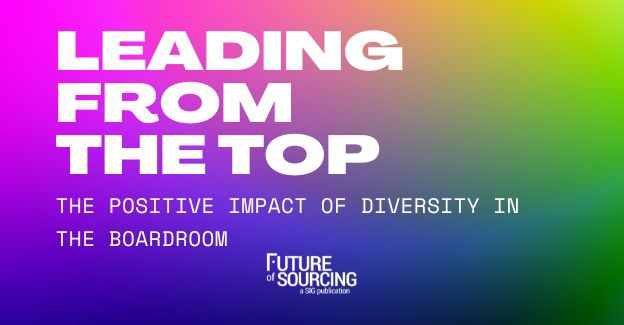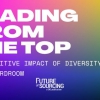Despite regulations in multiple countries forcing board rooms to have a minimum number of female board members, progress is slow, and it's even slower in executive board positions like CEO and CFO says Candice Eaton Gaul, Global Diversity and Inclusion Leader at RSM International. She dives into the importance of boardroom diversity, and how this can be proactively achieved to drive equality.
Social justice movements have been powerful catalysts for change in recent years. As these movements have gained in momentum, they have not only raised awareness of inequality and discrimination, but also set an expectation for change and transparency with the right to question injustice and seek remedy. As a result, diversity in governance and leadership is taking center stage in corporate mission statements and employee value propositions.
Despite good intention, transformation is slow, and in many instances, boardrooms still do not reflect the employees they lead or the customers they serve. This creates the opportunity to explore why more drastic measures may be necessary for corporate entities to make progress in gender equality so they can reap the business benefits and remain relevant and sustainable.
Change Must Come From the Top
Taking active steps to increase diversity in board participants and top management fuels creativity and leads to better decision-making. Having a broader range of voices and alternative opinions at the table means business leaders are better equipped to assess risks, attend to complex problems, overcome challenges and help their organizations thrive.
There is evidence, too, that greater board diversity delivers benefits that go beyond conventional business performance; it also helps maximise the wider social good that businesses can generate. Recent research showed, for example, that companies with more women on their boards were more likely to be on track to meet global climate goals. With environmental, social and governance (ESG) considerations on the rise, it is clear that increasing diversity is becoming a necessity for sound corporate governance and risk management.
Boards should be acting now to measure the composition of their company’s stakeholders – from clients and customers to investors and employees – and ask themselves honestly if their breadth is truly represented. This measurement can be complex, especially for larger businesses, because it is dependent on a host of regional and societal factors. It must be done in a way that is meaningful for each individual business and its circumstances.
Once a measurable benchmark for improvement has been created, commitment from senior leadership is required to give direction and take action forward, as part of a broader organizational strategy. Most importantly, this should be reflected in daily decision-making.
One way of ensuring organizations reflect the broader society in which they operate is to make changes to recruitment. The rise in remote and hybrid working, the reduced significance of geographic location, along with technology-evolving recruitment processes has created an opportunity for businesses to bring in a range of diverse talent. In addition, this prompts them to question what job functions are actually required to achieve and the role they play in delivering the broader organizational strategies.
Increased diversity can also come from within. Boards are able to audit the diversity of existing talent within their organizations and establish where there is untapped creativity, innovative thinking, and different mindsets or backgrounds that can be drawn upon. Actively searching out undercapitalized talent from within can provide interesting insight and assist with formulating business and governance decisions from a different perspective.
How to Eliminate the Drivers of Inequality
Finally, there is an opportunity to do better for ourselves and each other by considering the root causes of inequality, as well as thinking about how its grip on our societies can be loosened.
As a South African, I am a firm believer that Nelson Mandela was correct: education is the most powerful tool we have to change the world. Education, training and development in schools and in businesses is critical for creating future leaders, generating opportunities for them and widening the talent pool ever further. Of course, this takes time, but businesses can play their part now by sponsoring students, offering bursaries and creating training resources for existing employees. Those which do so will reap the long-term benefits.
In summation, real action to drive equality requires urgent attention. Thinking strategically about board diversity will better equip businesses to improve their corporate cultures, boost business performance and respond to global challenges such as climate change. And there are immediate changes that business leaders can make to their boards that will ultimately drive a more inclusive mindset throughout their organization and into the wider world.
There is a moral imperative to act. After all, if corporates are struggling to make change toward equality and representation, how can we expect other parts of society to do so?








